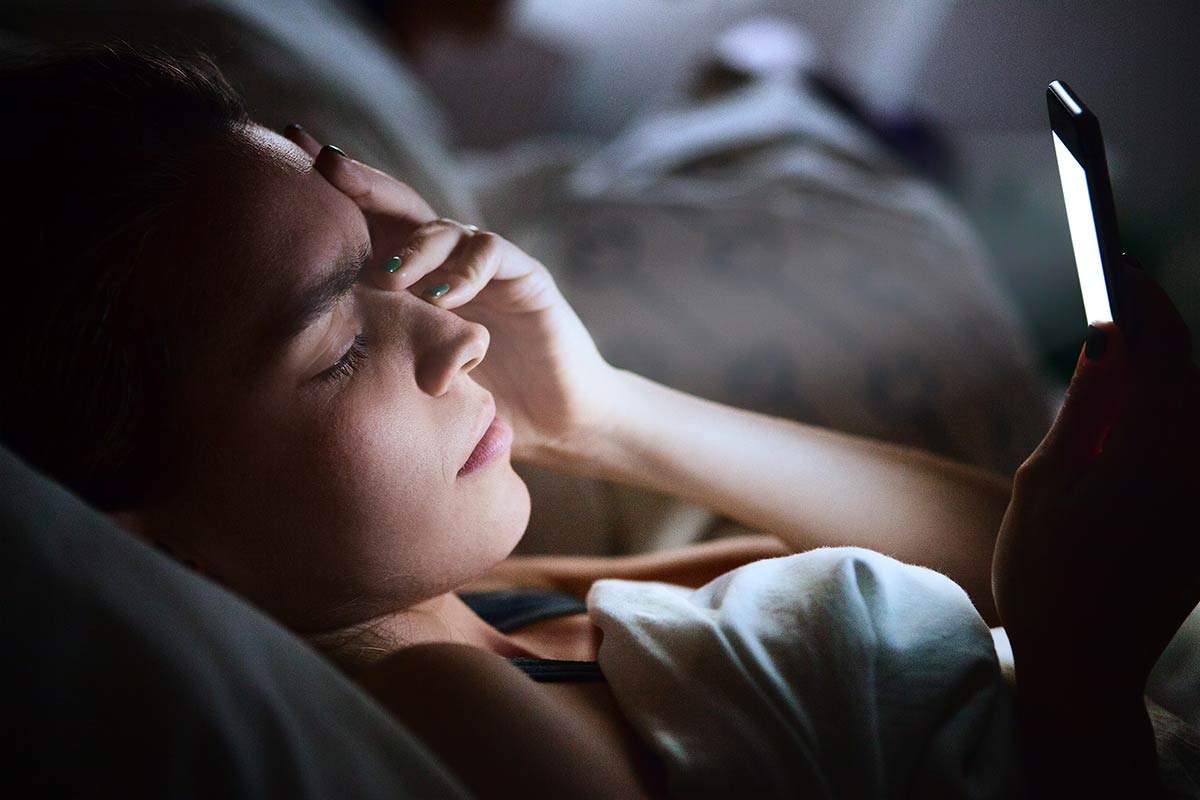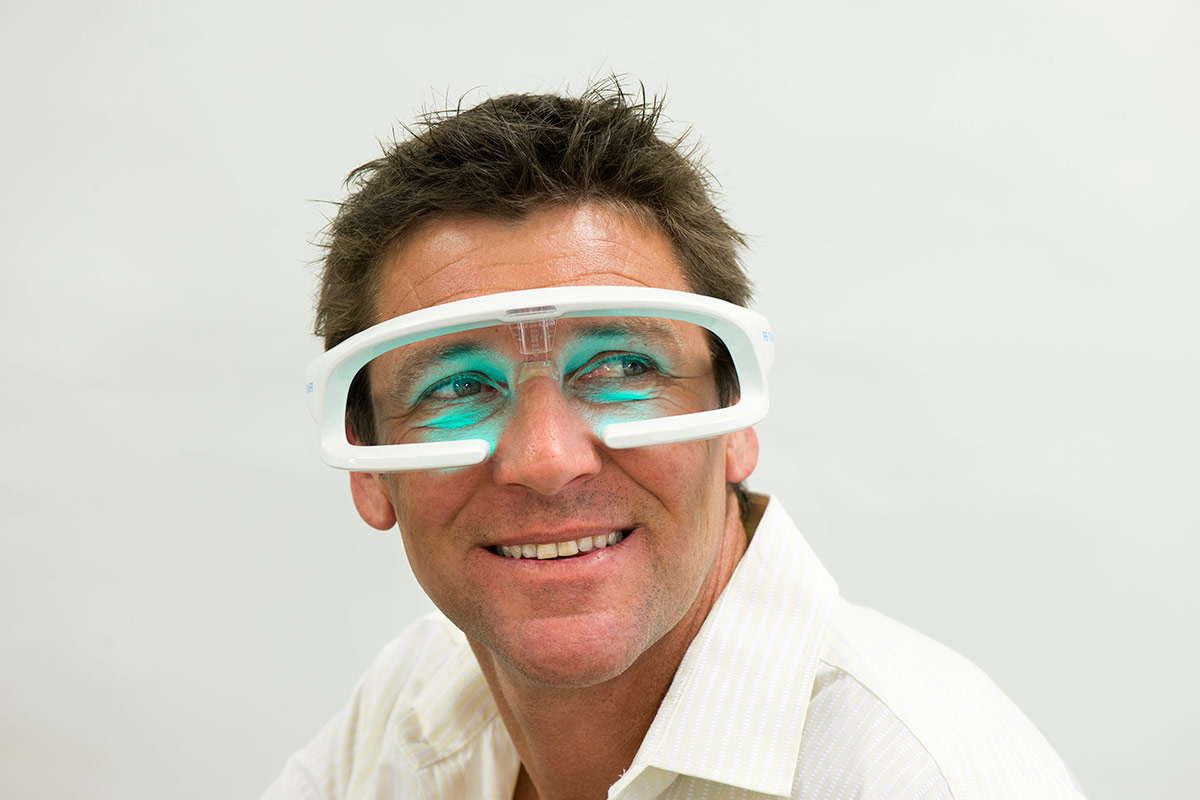
Are you one of thousands of people who toss and turn and have trouble getting to sleep?
A new study at Flinders University is investigating whether Re-timer glasses can help insomniacs’ body clock finally get a good night’s sleep.
Insomnia is a very common disorder that affects the lives of about 2.5 million Australians.
The study is seeking to treat those whose main difficulty is getting to sleep initially but who sleep relatively soundly after finally getting to sleep.
The green-light glasses, developed by sleep and psychology experts at Flinders University, are used around the world by business and sporting people, students and shift workers for jetlag and assorted sleep disorders, often in tandem with other measures.
“We want to see how long it takes the insomniac group to benefit from using the devices, in their home environment,” says trial leader Dr Nicole Lovato, from the Adelaide Institute for Sleep Health at Flinders University, Bedford Park.
Previous Flinders University studies with normal sleepers showed the glasses can delay the body clock when used in the evening, or to shift the body clock earlier when the Re-timers are used in the morning.
“Our past research has shown that the insomnia problem to taking a long time to fall asleep, or sleep onset insomnia, is caused by a body clock that is delayed,” says research supervisor Professor Leon Lack.
“Since we know the Re-timers correct the timing of the delayed body clock by shifting it earlier in time when used in the mornings, we are confident that they can also help those with sleep onset insomnia when used in the mornings.”
People who have difficulty falling asleep are invited to take part in the trial by emailing sleep@flinders.edu.au or call 7221 8307.
Patients will be asked to wear the novel optical device, which looks like spectacles with small light emitting diodes attached to the lower frames, at home, in the morning after they wake up, for one week only.

“We have demonstrated this treatment is effective at retiming the body clock in those who have otherwise good sleep,” Dr Lovato says.
“In this world-first study, we will examine the effectiveness of these light devices for improving sleep and the daytime feelings in those who suffer from insomnia.”
The wearable devices capitalise on the effect of light on our daily rhythms and endogenous body clock.
Exposure to specific kinds of blue-green (as opposed to white) light can be useful to reduce jetlag, treat insomnia, shift worker disorderly sleep, and a type of depression called seasonal affective disorder or as it stimulates the production of melatonin, a hormone that controls circadian rhythm.
Appropriately timed exposure to bright light can ‘re-time’ (or phase shift) the circadian rhythm and consequently help to alleviate the associated sleep difficulties and daytime routine (sequelae).
BACKGROUND: Circadian rhythms determine the timing of sleep and wakefulness across the 24-hour day. An individual with a ‘normally’ timed circadian rhythm will typically fall asleep at approximately 11pm and wake around 7am. However chronic sleep difficulties can occur when the circadian rhythm is mis-timed, leading to a sleep-wake rhythm that does not coincide with an individual’s preferred sleep-wake schedule. A late timed circadian rhythm can lead to difficulty falling asleep. Sleep onset insomnia is associated with delays of the circadian rhythm in the order of 2-3 hours. Later sleep onset times increase the tendency to sleep later into the morning in a bid to obtain sufficient sleep. However, when required to rise for work or social obligations (e.g. at 7am), an individual with a delayed circadian rhythm will experience extreme difficulty as they are attempting to rise at the time of maximum circadian sleepiness. The negative experience of this physiologically based difficulty, coupled with insufficient sleep, can amplify the negative consequences of difficulty falling asleep and reinforce the cycle of chronic insomnia.

